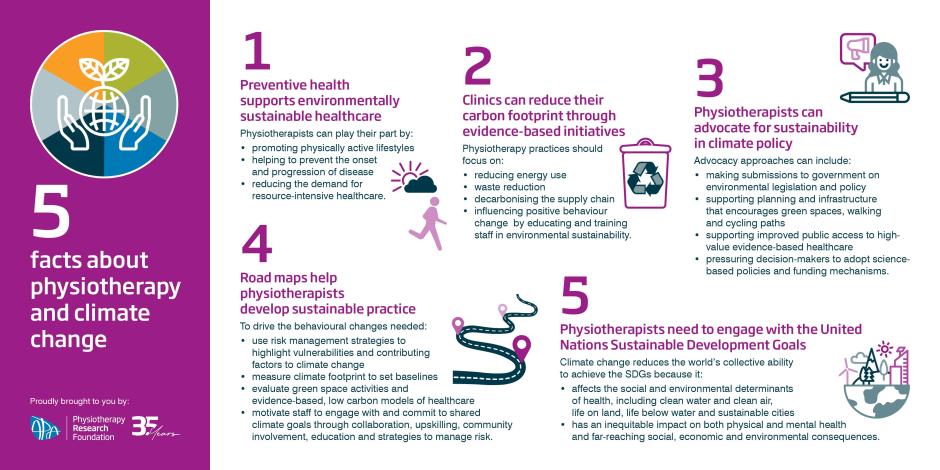Five facts about physiotherapy and climate change
The healthcare sector plays a significant role in Australia’s greenhouse gas emissions, accounting for approximately seven per cent.
Physiotherapists, along with other health professionals, can play a part in reducing the demand for resource-intensive healthcare by reducing energy use, monitoring waste management, decarbonising the supply chain and staff behaviour change.
The Physiotherapy Research Foundation (PRF) has highlighted key messages from the 5 facts article featured in the September edition of InMotion and produced this infographic.
Click on the image below to access a printable A3 file.
About the authors.
David Duindam is a senior physiotherapist and sustainability consultant at Orion Family Physiotherapy and environmental sustainability coordinator at the Royal Flying Doctor Service (Queensland Section). David’s main clinical and research interests are musculoskeletal physiotherapy and healthcare decarbonisation and sustainability.
Deb Sutherland APAM, MACP is an APA Musculoskeletal Physiotherapist with a clinical background in musculoskeletal physiotherapy who has worked as an occupational health physiotherapist for 15 years. Deb has an honours degree in economics from Monash University and is a workplace trainer and a mental health first aider.
Jessica Clarke is a research fellow at the University of Melbourne in climate change, sustainability and healthcare.
APA Honoured Member Professor Gillian Webb AM, APAM is a physiotherapy academic based at the University of Melbourne. Gillian is interested in the education of health professionals in Australia and the Asia Western Pacific region, accreditation and regulation, global health and the SDGs.
This infographic is a Physiotherapy Research Foundation (PRF) initiative supported by FlexEze – partner of the PRF.


